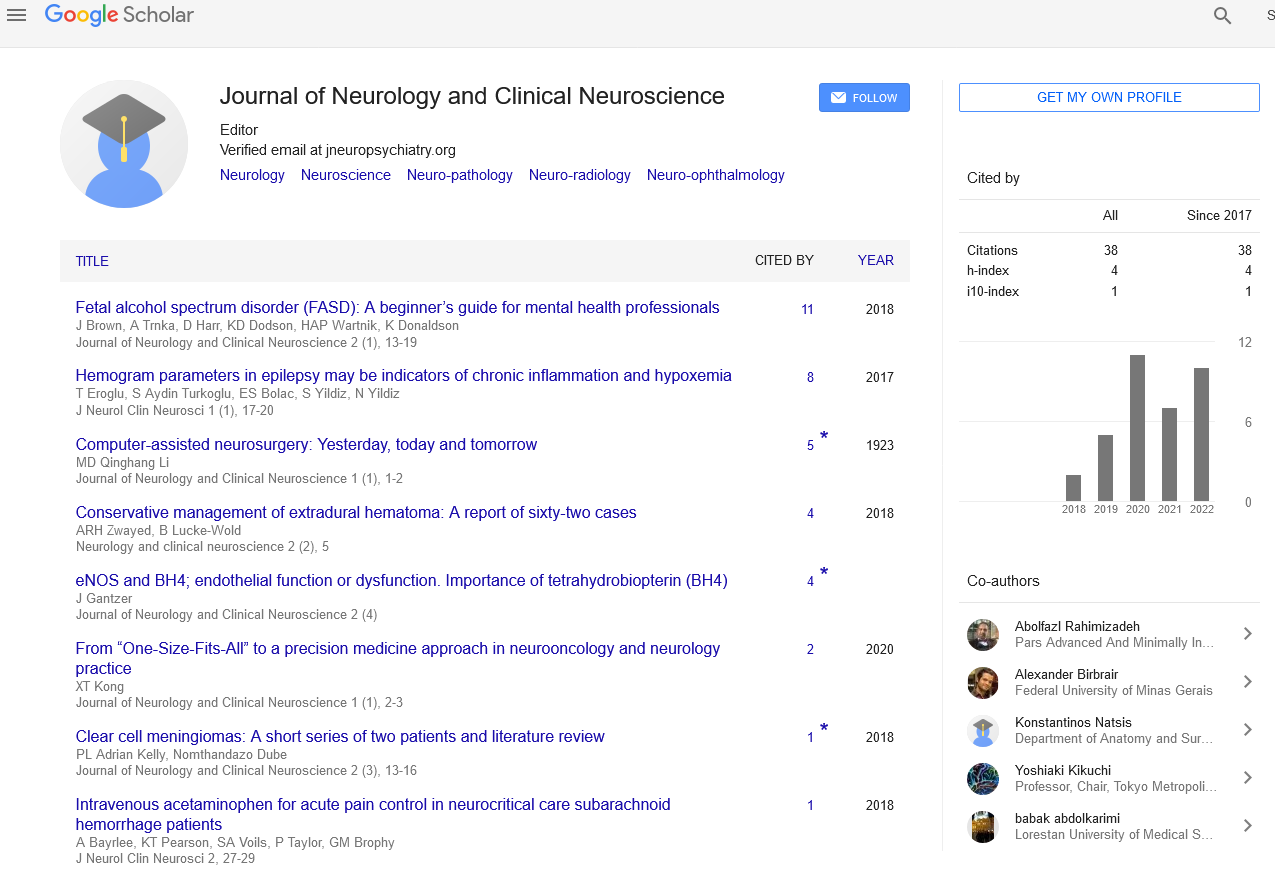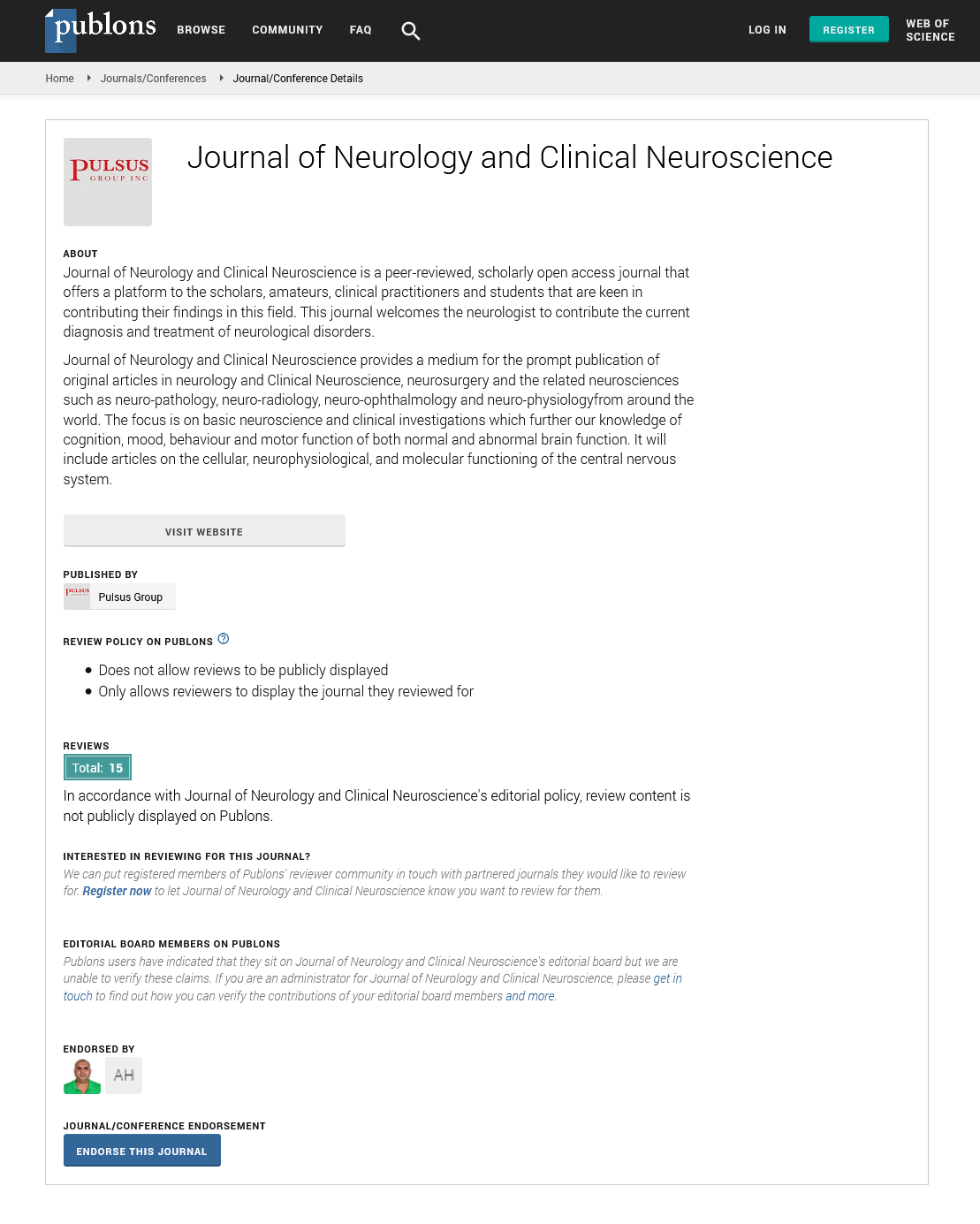Sign up for email alert when new content gets added: Sign up
Impact of overweight and hyperglycemia on the blood-brain barrier and cerebral plasticity: Protective effects of extracts from Reunion's biodiversity
6th WORLD CONGRESS ON NEUROLOGY AND THERAPEUTICS
April 27, 2022 | Webinar
Batoul Ghaddar, Matthieu Bringart, Christian Lefebvre d'Hellencourt, Bryan Veeren, Laura Gence, Philippe Rondeau, Olivier Meilhac, Jean-Loup Bascands, Nicolas Diotel
University of Reunion, France Reunion University Hospital, France
ScientificTracks Abstracts: J Neurol Clin Neurosc
Abstract :
Obesity and diabetes are considered global epidemics and are the main risk factors for cardiovascular diseases. They also impair the central nervous system namely brain plasticity. In this work, we used zebrafish as an integrative model to investigate the impact of metabolic disorders on brain homeostasis and plasticity. To this aim, we established the diet-induced obesity (DIO) model by overfeeding fish for 4 weeks. Then we tried to understand the mechanisms behind these cerebral disruptions for finally studying the neuroprotective effects of medicinal plant extracts from Reunion Island pharmacopeia. Our experimental protocol resulted in increased body weight, body mass index, and fasting blood glucose levels testifying of the development of metabolic disruptions. Our extravasation assays as well as immunohistochemistry and gene expression analyses demonstrated that DIO fish suffered from blood-brain barrier leakage, cerebral oxidative stress, neuroinflammation, and blunted neurogenesis. Notch signaling, a neurogenic gatekeeper, does not appear to be involved in decreased neurogenesis. However, DIO fish displayed chronic stress as shown by disrupted locomotion, and increased cerebral expression of fkbp5 (glucocorticoid responsive gene). So, our DIO model induced an imbalanced peripheral and central environment, affecting brain plasticity by mechanisms possibly involving glucocorticoid hormones. Finally, the preventive treatment of DIO fish with aqueous extract of a medicinal plant (A. borbonica at 0.5 g/L) improved the BBB physiology, cerebral redox, and inflammatory status, and partly restored normal neurogenesis. Taken together our data demonstrate that metabolic disorders could impact brain physiology and plasticity. They confirm the preventive effect of the medicinal plant to counteract in part some of these deleterious effects. Consequently, zebrafish could be used as a screening model for finding new therapeutics in order to combat the deleterious effects of metabolic disorders on brain plasticity.
Recent Publication :
1. Ghaddar B, Lübke L, Couret D, Rastegar S, Diotel (2021) Cellular Mechanisms Participating in Brain Repair of Adult Zebrafish and Mammals after Injury. Cells 10(2):391
2. Ghaddar B, Bringart M, Lefebvre d'Hellencourt C, Meilhac O, Diotel N (2021) Deleterious Effects of Overfeeding on Brain Homeostasis and Plasticity in Adult Zebrafish. Zebrafish 18(3):190-206
3. Ghaddar B, Veeren B, Rondeau P, Bringart M, Lefebvre d'Hellencourt C, Meilhac O, Bascands JL, Diotel N (2020) Impaired brain homeostasis and neurogenesis in diet-induced overweight zebrafish: a preventive role from A. borbonica extract. Sci Rep 10(1):14496
Biography :
Batoul Ghaddar is a third-year PhD student at the University of the Reunion Island working at the DeTROI laboratory; working mainly on the effect of obesity and diabetes on the central nervous system and brain homeostasis especially brain plasticity using the zebrafish model.





